Filter by
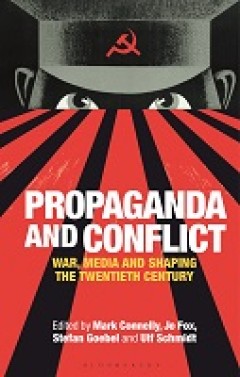
Propaganda and Conflict
Propaganda has always played a key role in shaping attitudes during periods of conflict and the academic study of propaganda, commencing in earnest in 1915, has never really left us. We continue to want to understand propaganda’s inner-workings and, in doing so, to control and confine its influence. We remain anxious about pernicious information warfare campaigns, especially those that seemin…
- Edition
- -
- ISBN/ISSN
- 9781788316712
- Collation
- -
- Series Title
- -
- Call Number
- -
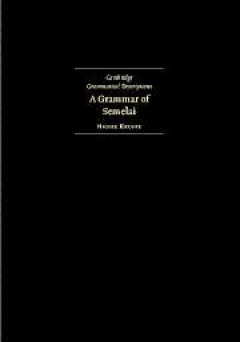
A Grammar of Semelai
Semelai is a previously undescribed and endangered Aslian (Mon-Khmer) language of the Malay Peninsula. This book - the first in-depth description of an Aslian language - provides a comprehensive reference grammar of Semelai. Semelai intertwines two types of morphological system: a concatenative system of prefixes, suffixes and a circumfix - acquired through extended contact with Malay - and a n…
- Edition
- -
- ISBN/ISSN
- 9780511550713
- Collation
- -
- Series Title
- Cambridge Grammatical Descriptions
- Call Number
- -
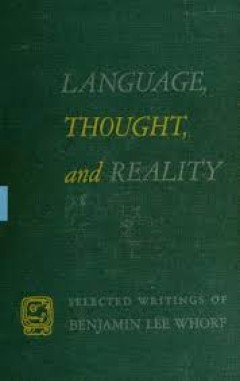
Language, Thought, and Reality (1956 edition)
Overview: A unique perspective on the confluence of the three basic conceptual frameworks in human experience. Contains several studies, with data, of remarkable world views of disparate cultures based on their specific cultures language. The premise is that how people experience the world, then think about it, then create a language around it, alters their perception of the world in very funda…
- Edition
- -
- ISBN/ISSN
- -
- Collation
- 278 Pages
- Series Title
- -
- Call Number
- 404 WHO l
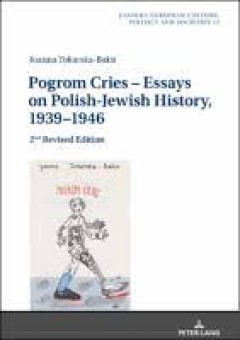
Pogrom Cries – Essays on Polish-Jewish History, 1939–1946 2nd Revised Ed…
This book focuses on the fate of Polish Jews and Polish-Jewish relations during the Holocaust and its aftermath, in the ill-recognized era of Eastern-European pogroms after the WW2. It is based on the author’s own ethnographic research in those areas of Poland where the Holocaust machinery operated. The results comprise the anthropological interviews with the members of the generation of Holo…
- Edition
- -
- ISBN/ISSN
- -
- Collation
- -
- Series Title
- -
- Call Number
- -
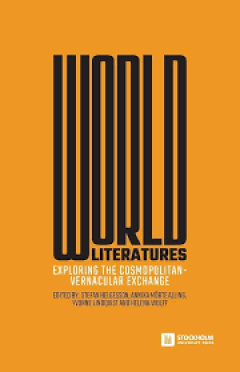
World Literatures Exploring the Cosmopolitan-Vernacular Exchange
"Placing itself within the burgeoning field of world literary studies, the organising principle of this book is that of an open-ended dynamic, namely the cosmopolitan-vernacular exchange. As an adaptable comparative fulcrum for literary studies, the notion of the cosmopolitan-vernacular exchange accommodates also highly localised literatures. In this way, it redresses what has repeatedly been i…
- Edition
- -
- ISBN/ISSN
- 9789176350782
- Collation
- -
- Series Title
- -
- Call Number
- -
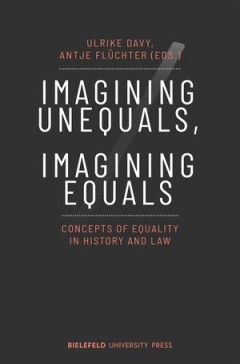
Imagining Unequals, Imagining Equals: Concepts of Equality in History and Law
Why did »equality« become prominent in European societies based on hierarchy during the Enlightenment? What does »equality« imply for societies, politics, or legal systems? The contributors to this volume draw on various historical case studies, from visionary practices in revolutionary France and the collection of data on the poor in 19th-century Germany, to claims raised under the minorit…
- Edition
- -
- ISBN/ISSN
- 9783839458877
- Collation
- -
- Series Title
- -
- Call Number
- 900 IMA i
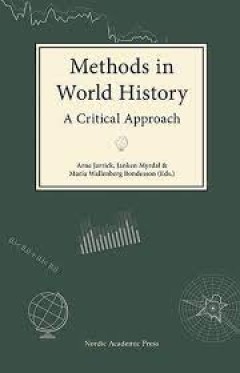
Methods in World History : A Critical Approach
Methods in World History is the first international volume that systematically addresses a number of methodological problems specific to the field of World History. Prompted by a lack of applicable works, the authors advocate a considerable sharpening of the tools used within the discipline. Theories constructed on poor foundations run an obvious risk of reinforcing flawed assumptions, and of p…
- Edition
- 1
- ISBN/ISSN
- 9789188168481
- Collation
- -
- Series Title
- -
- Call Number
- 909 MET
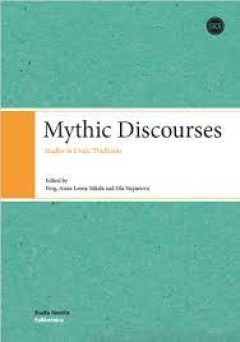
Mythic Discourses Studies in Uralic Traditions
"Mythic discourses in the present day show how vernacular heritage continues to function and be valuable through emergent interpretations and revaluations. At the same time, continuities in mythic images, motifs, myths and genres reveal the longue durée of mythologies and their transformations. The eighteen articles of Mythic Discourses address the many facets of myth in Uralic cultures, from …
- Edition
- -
- ISBN/ISSN
- 9789522225078
- Collation
- -
- Series Title
- -
- Call Number
- -
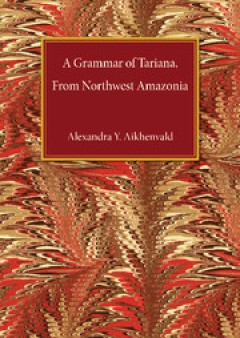
A Grammar of Tariana, from Northwest Amazonia
This is a comprehensive reference grammar of Tariana, an endangered Arawak language from a remote region in the northwest Amazonian jungle. Its speakers traditionally marry someone speaking a different language, and as a result most people are fluent in five or six languages. Because of this rampant multilingualism, Tariana combines a number of features inherited from the protolanguage with pro…
- Edition
- -
- ISBN/ISSN
- 9781107050952
- Collation
- -
- Series Title
- -
- Call Number
- -
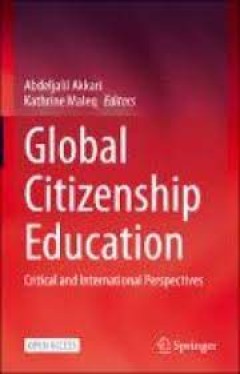
Global Citizenship Education Critical and International Perspectives
This open access book takes a critical and international perspective to the mainstreaming of the Global Citizenship Concept and analyses the key issues regarding global citizenship education across the world. In that respect, it addresses a pressing need to provide further conceptual input and to open global citizenship agendas to diversity and indigeneity. Social and political changes brought …
- Edition
- -
- ISBN/ISSN
- -
- Collation
- -
- Series Title
- -
- Call Number
- -
 Computer Science, Information & General Works
Computer Science, Information & General Works  Philosophy & Psychology
Philosophy & Psychology  Religion
Religion  Social Sciences
Social Sciences  Language
Language  Pure Science
Pure Science  Applied Sciences
Applied Sciences  Art & Recreation
Art & Recreation  Literature
Literature  History & Geography
History & Geography